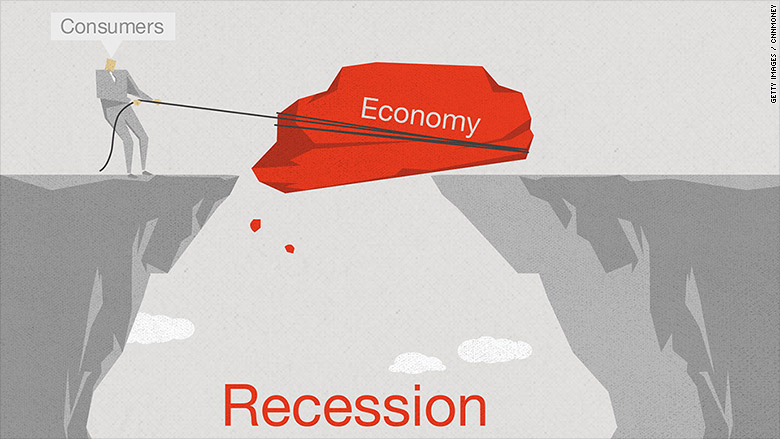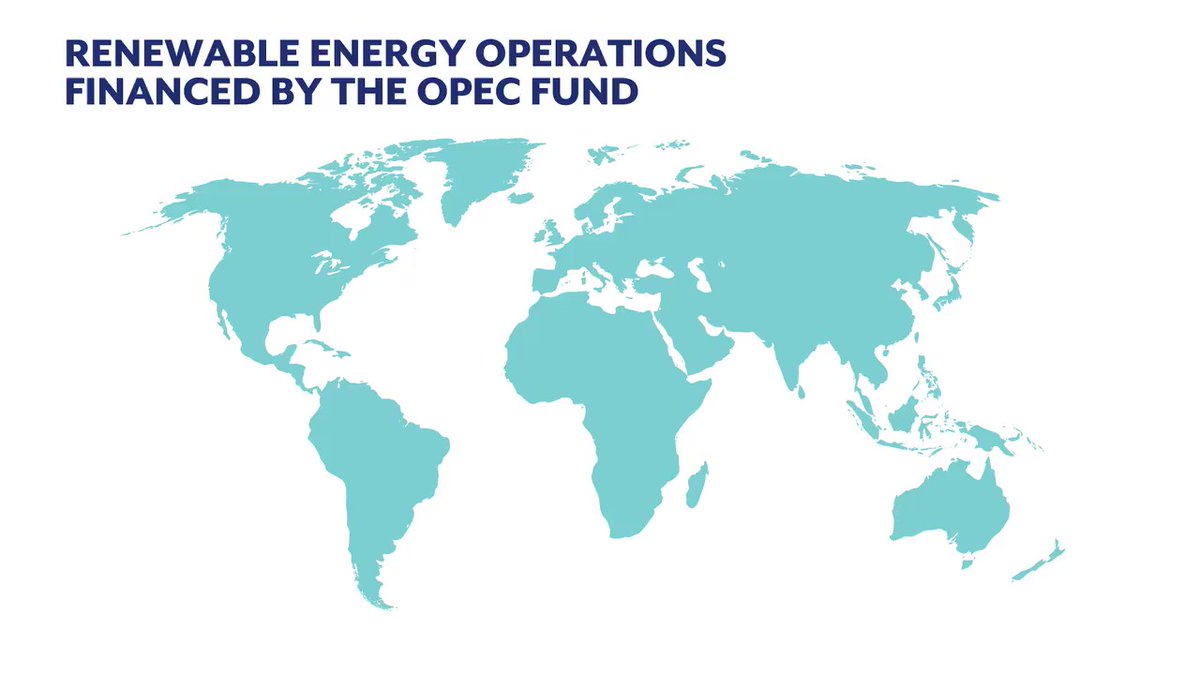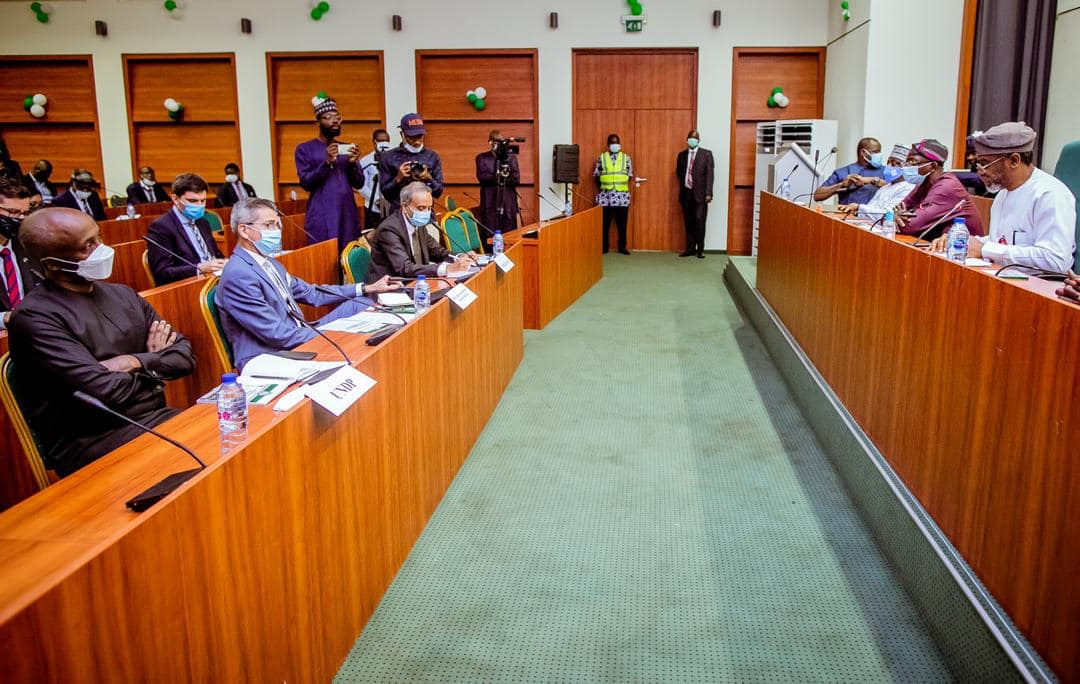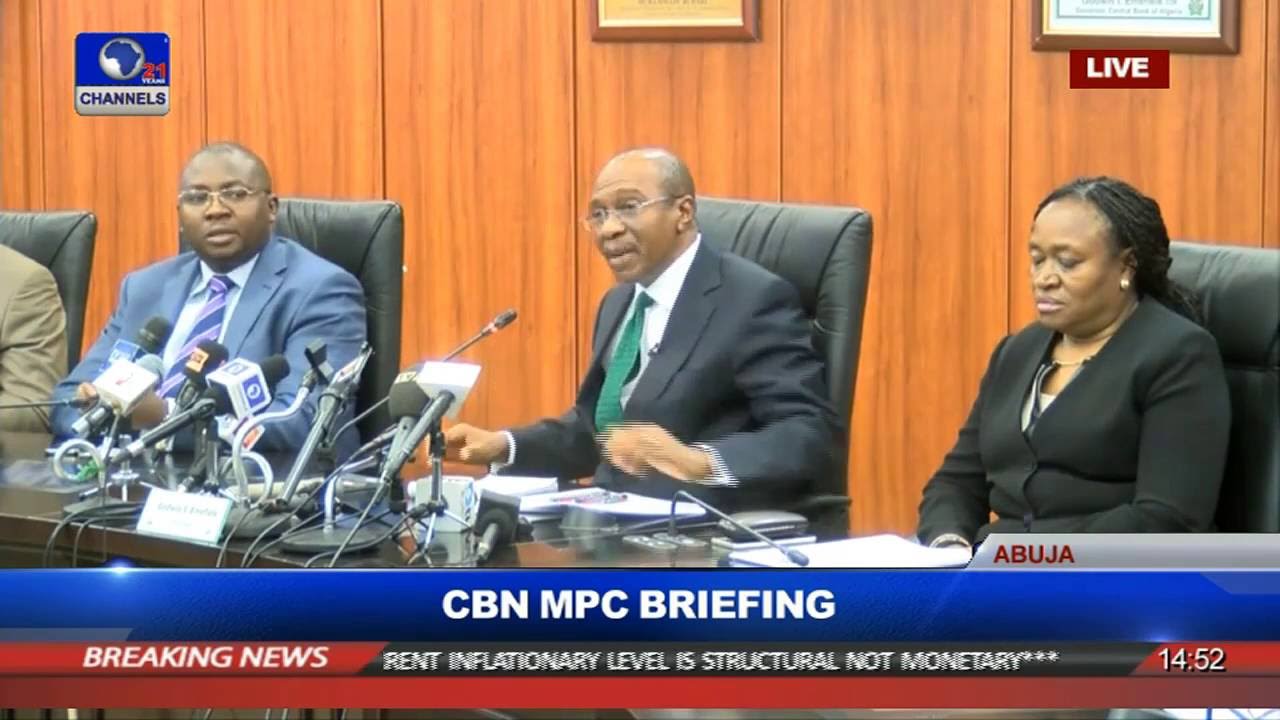Economy
Governors Quickened Nigeria’s Economic Recovery—NGFS

By Modupe Gbadeyanka
The Nigeria Governors’ Forum Secretariat (NGFS) has disclosed that the contributions of Governors in the country have been tremendous.
A statement signed by the Head, Media & Public Affairs of the NGFS, Mr Abulrazque Barkindo, quoted an Economist at the NGFS, Mr David Nabena, as saying during a meeting of the Fiscal Sustainability Plan (FSP) committee in Abuja that, “Thanks to governors and their reforms at the sub-national level, there is a 69 percent success in Public Expenditure Reforms being implemented by governments at the sub-national level.”
It was disclosed that this may have contributed immensely to the quick turnaround of the national economy which wriggled itself out of recession much faster than the public had expected.
The FSP committee comprises officials of the NGF, and Federal Ministry of Finance.
The FSP, the framework for the sustenance of state governments in Nigeria, which is a product of an agreement between federal and state governments, has been hailed as a strategic game-changer for fiscal governance at the state level.
The FSP seeks to improve transparency and accountability, increase public revenue, rationalize public expenditure, improve public finance management and facilitate sustainable debt management. The meeting was to review the 22 core action points of the FSP from its last workshop held in April.
According to the NGFS findings, “the action point with the highest percentage of implementation is that of Public Expenditure Reform, which recorded 69% success,” the NGFS Economist, Nabena disclosed.
Several economists have argued that since most economic activities take place in the states, they might have indirectly assisted the economic recovery that the nation is now celebrating.
However, Nabena still believes more can be done by states to get the country out of the doldrums. Others with encouraging results according to him were public revenue reforms 63% and 54% for debt management reforms.
These are laudable goals, according to many economists, but above all it shares a very special affinity with the Open Government Partnership OGP which carries with it huge financial relief for governments that are able to meet its conditions.
A consultant at the Kaduna Business School concludes that the first point to note is that states are in dire financial straits today because of poor management of fiscal and other resources that occurred in the years preceding the report.
Funds meant for development have been stolen outright and laws and policies, where they exist, have been ignored. In some states, there is an absence of good fiscal laws, according to the findings.
Nabena noted that the purpose of the meeting was to share findings of the 22 core action points of the FSP from the workshop held in April, as well as acquaint the ministry of the plans of the NGF Secretariat going forward.
During his presentation, Nabena noted that around 15 out of the 22 action points of the FSP have been implemented by most States, stating however that, this finding was contained in the states’ self-assessment reports.
He also highlighted the actions with the weakest implementation status, among which Nabena lamented were those targeted at accountability and transparency.
Even here, Nabena explained, there is light at the end of the tunnel because there is a 44% success in implementation despite the fact that many states find the adoption of IPSAS cumbersome, expensive and challenging.
In conclusion, the NGF Economist regretted that the picture is not all rosy for governance at the subnational level.
In many states that work was conducted Nabena stated that there is no consolidated debt service account or sinking fund, 9 states do not have an active and functional website, seven states have not yet concluded their biometric staff audit, and up to 31 states have recorded success in the internal audit of their accounts. “Only sixteen states” Nabena added, “have an efficiency unit.”
Responding, the Director, Home Finance at the Finance Ministry Mrs Olubunmi Siyanbola congratulated the Forum for the brilliant and thorough work that they had done and also added that the figures given by the Forum is not far from that of the Consultants they deployed for the same reason.
Olubunmi Siyanbola also disclosed that 6 Consultants have been sent to the different geo-political zones to make a report on the activities of the states around the 22 action points of the FSP and their success stories so far.
She added that the way forward will be determined when all the consultants are back from the field with the complete report.
However, at a glance, the consultants recorded a 42% level of implementation across the 36 states, other percentages are 60% for Public expenditure reforms as against 69% from the NGF, 56% for PFM which is the same with what the Forum recorded and 35% level of implementation for public debt as against 54% recorded by the NGF.
Economy
Champion Breweries Concludes Bullet Brand Portfolio Acquisition

By Aduragbemi Omiyale
The acquisition of the Bullet brand portfolio from Sun Mark has been completed by Champion Breweries Plc, a statement from the company confirms.
This marks a transformative milestone in the organisation’s strategic expansion into a diversified, pan-African beverage platform.
With this development, Champion Breweries now owns the Bullet brand assets, trademarks, formulations, and commercial rights globally through an asset carve-out structure.
The assets are held in a newly incorporated entity in the Netherlands, in which Champion Breweries holds a majority interest, while Vinar N.V., the majority shareholder of Sun Mark, retains a minority stake.
Bullet products are currently distributed in 14 African markets, positioning Champion Breweries to scale beyond Nigeria in the high-growth ready-to-drink (RTD) alcoholic and energy drink segments.
This expansion significantly broadens the brewer’s addressable market and strengthens its revenue base with an established, profitable portfolio that already enjoys strong brand recognition and consumer loyalty across multiple markets.
“The successful completion of our public equity raises, together with the formal close of the Bullet acquisition, marks a defining moment for Champion Breweries.
“The support we received from both existing shareholders and new investors reflects strong confidence in our long-term strategy to build a diversified, high-growth beverage platform with pan-African scale.
“Our focus now is on disciplined execution, integration, and delivering sustained value across markets,” the chairman of Champion Breweries, Mr Imo-Abasi Jacob, stated.
Through this transaction, Champion Breweries is expected to achieve enhanced foreign exchange earnings, expanded distribution leverage across African markets, integrated supply chain efficiencies, portfolio diversification into high‑growth consumer beverage categories, and strengthened presence in the RTD and energy drink segments.
The acquisition accelerates Champion Breweries’ transition from a regional brewing business to a multi-category consumer platform with continental reach.
Bullet Black is Nigeria’s leading ready-to-drink alcoholic beverage, while Bullet Blue has built a strong presence in the energy drink category across several African markets.
Economy
M-KOPA Nigeria Plans Expansion to Edo, Others After N231bn Credit Milestone

By Adedapo Adesanya
Emerging market fintech firm, M-KOPA, has announced plans to deepen its reach in Nigeria to the South South and South East regions, starting with Edo this year, after providing N231 billion in credit to over 1 million customers in the country.
The firm released its first Nigeria-focused Impact Report, which showed that Nigeria is M-KOPA’s fastest-growing market and fastest to reach the milestone.
Since its foray into the Nigerian market in 2019, M-KOPA has been working to dismantle barriers to financial inclusion by providing flexible smartphone financing and digital financial tools that align with how people in the informal economy earn and manage their money.
It operates in six states in the country, including Lagos, Ogun, and Oyo, among others.
The report highlights the company’s contribution to income generation, digital inclusion and economic opportunity for Every Day Earners across the country.
The report showed that M-KOPA has enabled 290,000 first-time smartphone users, while 56 per cent of agents accessed their first income opportunity through the platform.
It showed high income and livelihood gains among its users, with about 77 per cent of customers leveraging smartphones or digital loans obtained through the platform to generate income, indicating that access to financed devices is directly supporting micro-entrepreneurial activity and informal sector productivity.
Furthermore, 75 per cent of users report higher earnings since gaining access to M-KOPA’s services, suggesting measurable improvements in personal revenue streams. On the distribution side, 99 per cent of agents disclose increased earnings, reflecting positive spillover effects across the company’s value chain.
In addition, 81 per cent of long-term customers state that their household expenses have improved, pointing to enhanced financial stability and better consumption smoothing over time.
Speaking on the report, Mr Babajide Duroshola, General Manager, M-KOPA Nigeria, said, “Nigeria represents extraordinary potential, and we’re proud that it has become M-KOPA’s fastest-growing market. Our Impact Report shows that when Every Day Earners gain access to the right digital and financial tools, they use them to create stability and long-term progress for their families. This is about access that unlocks opportunity and sustained prosperity.”
On its expansion plans Nigeria-wide, the M-KOPA helmsman said, “Many of the states we are considering are already similar to the ones we are currently in proximity… So, there is proximity and similarity between these states, and that’s what we are going to do, starting with Edo.”
He noted that as M-KOPA Nigeria continues to expand, the focus remains on ensuring more everyday earners gain access to the digital and financial tools they need to build resilient, prosperous futures in Nigeria’s rapidly digitising economy.
Economy
Tinubu Okays Extension of Ban on Raw Shea Nut Export by One Year

By Aduragbemi Omiyale
The ban on the export of raw shea nuts from Nigeria has been extended by one year by President Bola Tinubu.
A statement from the Special Adviser to the President on Information and Strategy, Mr Bayo Onanuga, on Wednesday disclosed that the ban is now till February 25, 2027.
It was emphasised that this decision underscores the administration’s commitment to advancing industrial development, strengthening domestic value addition, and supporting the objectives of the Renewed Hope Agenda.
The ban aims to deepen processing capacity within Nigeria, enhance livelihoods in shea-producing communities, and promote the growth of Nigerian exports anchored on value-added products, the statement noted.
To further these objectives, President Tinubu has authorised the two Ministers of the Federal Ministry of Industry, Trade and Investment, and the Presidential Food Security Coordination Unit (PFSCU), to coordinate the implementation of a unified, evidence-based national framework that aligns industrialisation, trade, and investment priorities across the shea nut value chain.
He also approved the adoption of an export framework established by the Nigerian Commodity Exchange (NCX) and the withdrawal of all waivers allowing the direct export of raw shea nuts.
The President directed that any excess supply of raw shea nuts should be exported exclusively through the NCX framework, in accordance with the approved guidelines.
Additionally, he directed the Federal Ministry of Finance to provide access to a dedicated NESS Support Window to enable the Federal Ministry of Industry, Trade and Investment to pilot a Livelihood Finance Mechanism to strengthen production and processing capacity.
Shea nuts, the oil-rich fruits from the shea tree common in the Savanna belt of Nigeria, are the raw material for shea butter, renowned for its moisturising, anti-inflammatory, and antioxidant properties. The extracted butter is a principal ingredient in cosmetics for skin and hair, as well as in edible cooking oil. The Federal Government encourages processing shea nuts into butter locally, as butter fetches between 10 and 20 times the price of the raw nuts.
The federal government said it remains committed to policies that promote inclusive growth, local manufacturing and position Nigeria as a competitive participant in global agricultural value chains.
-

 Feature/OPED6 years ago
Feature/OPED6 years agoDavos was Different this year
-
Travel/Tourism10 years ago
Lagos Seals Western Lodge Hotel In Ikorodu
-

 Showbiz3 years ago
Showbiz3 years agoEstranged Lover Releases Videos of Empress Njamah Bathing
-

 Banking8 years ago
Banking8 years agoSort Codes of GTBank Branches in Nigeria
-

 Economy3 years ago
Economy3 years agoSubsidy Removal: CNG at N130 Per Litre Cheaper Than Petrol—IPMAN
-

 Banking3 years ago
Banking3 years agoSort Codes of UBA Branches in Nigeria
-

 Banking3 years ago
Banking3 years agoFirst Bank Announces Planned Downtime
-

 Sports3 years ago
Sports3 years agoHighest Paid Nigerian Footballer – How Much Do Nigerian Footballers Earn


















